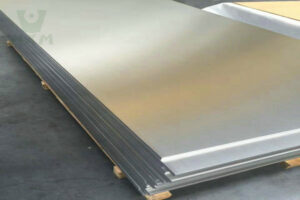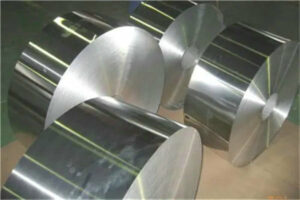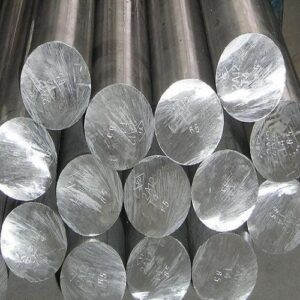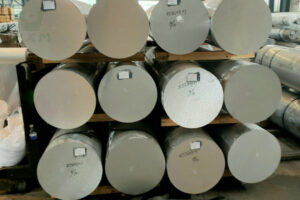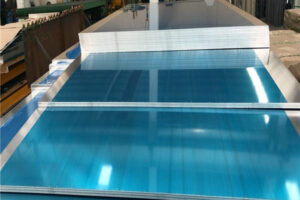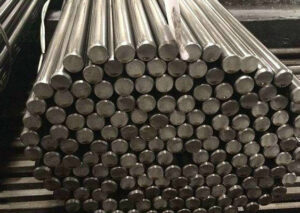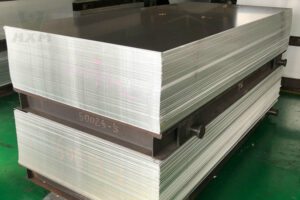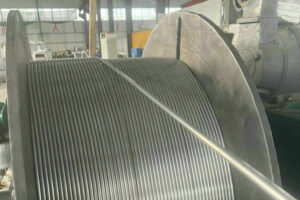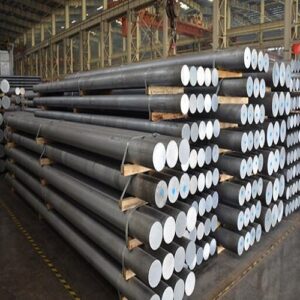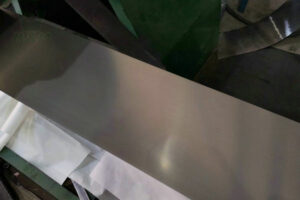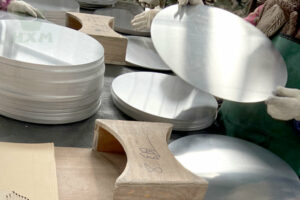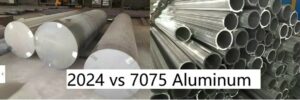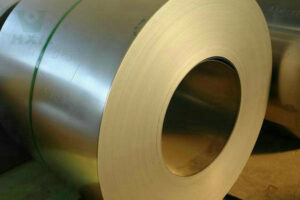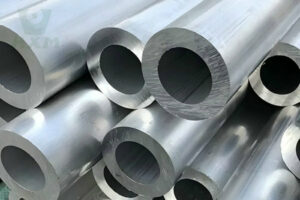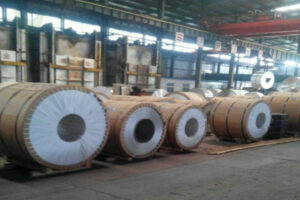When choosing aluminum alloys, 7075 aluminum vs 6061 aluminum alloys are two common high-performance materials on the market. They differ significantly in mechanical properties, corrosion resistance, and processability.
As a professional aluminum alloy supplier, HXM provides high-quality 7075 and 6061 aluminum materials to meet a variety of application needs. We ensure fast delivery, ample inventory, and competitive pricing!
This article will use our detailed comparison of 7075 aluminum and 6061 aluminum to help you choose the right material according to your needs.
Contact us today to get the latest quotes on 7075 and 6061 aluminum and choose the best material for your project!
What is 7075 Aluminum Alloy?
7075 aluminum alloy is a high-strength aluminum alloy with zinc as the main alloying element, originally developed for the aerospace industry. It is an ideal choice for materials requiring high strength due to its excellent mechanical properties and weight ratio.
Features:
- Main elements: zinc, magnesium, copper
- Very high tensile strength and yield strength
- More suitable for dry or low-corrosive environments
What is 6061 Aluminum Alloy?
6061 aluminum alloy is a widely used aluminum alloy with magnesium and silicon as the main alloying elements. It is widely used in construction, transportation, and other fields due to its good corrosion resistance, easy processing and economy.
Features:
- Main elements: magnesium, silicon
- Balanced strength, corrosion resistance, and processing performance
- Excellent performance in high humidity or marine environment
7075 Aluminum vs 6061 Aluminum: What's the Difference
Composition of 7075 Aluminum VS 6061 Aluminium
| Element | 7075 Aluminium (%) | 6061 Aluminium (%) | Analysis of Differences |
|---|---|---|---|
| Al | Remainder | Remainder | Both alloys have aluminum as the primary component. |
| Zn | 5.1 – 6.1 | ≤ 0.25 | 7075 has a significantly higher zinc content, contributing to its high strength. |
| Mg | 2.1 – 2.9 | 0.8 – 1.2 | 7075 contains more magnesium, enhancing its strength. |
| Cu | 1.2 – 2.0 | 0.15 – 0.40 | Copper content is much higher in 7075, improving mechanical properties. |
| Si | ≤ 0.40 | 0.4 – 0.8 | Silicon in 6061 enhances corrosion resistance and machinability. |
| Cr | 0.18 – 0.28 | 0.04 – 0.35 | 6061 has a slightly higher chromium content, improving corrosion resistance. |
| Fe | ≤ 0.50 | ≤ 0.70 | Iron is an impurity, and its content is kept low in both alloys. |
| Ti | ≤ 0.20 | ≤ 0.15 | Both alloys have similar titanium content, with 7075 being slightly higher. |
Mechanical Properties of 7075 Aluminum VS 6061 Aluminium
| Mechanical Property | 7075 Aluminium | 6061 Aluminium | Analysis of Differences |
|---|---|---|---|
| Tensile Strength | 572 MPa (min) | 310 MPa (min) | 7075 offers significantly higher tensile strength, making it suitable for high-stress applications. |
| Yield Strength | 503 MPa (min) | 276 MPa (min) | 7075 also outperforms 6061 in yield strength, making it more resistant to deformation under load. |
| Elongation at Break | 11% | 12-17% | 6061 has better elongation, offering more ductility and flexibility, which is useful for forming processes. |
| Hardness (Brinell) | 150 HB | 95 HB | 7075 has a much higher hardness, contributing to its superior wear resistance. |
| Modulus of Elasticity | 71.7 GPa | 68.9 GPa | Both alloys have similar stiffness, with 7075 being slightly stiffer. |
| Shear Strength | 483 MPa (min) | 207 MPa (min) | 7075 offers higher shear strength, ideal for load-bearing applications. |
| Fatigue Strength | 90 MPa | 50 MPa | 7075 has a much higher fatigue strength, making it more durable in cyclic loading situations. |
| Impact Toughness (Izod) | 60 J | 40 J | 7075 is tougher under impact, though 6061 also performs well in standard conditions. |
| Density | 2.81 g/cm³ | 2.70 g/cm³ | 6061 is slightly lighter, offering better weight efficiency for some applications. |
Application of 7075 Aluminum VS 6061 Aluminium
7075 aluminum alloy: Widely used in aerospace, racing parts, molds, high-end sports equipment and other fields.

6061 aluminum alloy: Commonly used in building frames, ship accessories, bicycle parts and daily industrial applications.
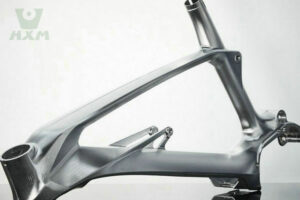
Other Diferences of 7075 Aluminum VS 6061 Aluminium
Machinability
7075 aluminum alloy: Due to its high hardness, it is more difficult to cut and requires professional equipment and experienced technical support.
6061 aluminum alloy: Known for its good machinability, it can be easily welded, cut, and formed, and is the preferred material for manufacturing complex parts.
Cost
7075 aluminum alloy: Due to its higher mechanical properties and strength, the cost is usually higher than 6061 aluminum alloy.
6061 aluminum alloy: More economical and a common choice in projects with limited budgets.
Strength and Durability
7075 aluminum alloy: Significantly stronger than 6061, but has poor corrosion resistance when exposed to high humidity for a long time.
6061 aluminum alloy: A balance between strength and durability, especially in harsh environments.
Composition and Properties
7075 aluminum alloy: High zinc and copper content gives it excellent strength, but reduces corrosion resistance.
6061 aluminum alloy: The combination of magnesium and silicon gives it better corrosion resistance while maintaining good strength.
Fabrication Considerations
7075 aluminum alloy: poor weldability, better performance after heat treatment.
6061 aluminum alloy: strong weldability, suitable for various welding techniques, heat treatment can significantly improve mechanical properties.
6061 vs. 7075 Aluminum: Which is the Better One for You?
Both 6061 and 7075 alloys are frequently used and have excellent mechanical properties. Each has its own advantages and disadvantages, and choosing the right aluminum alloy depends on the specific project needs and cost:
The main selling point of aluminum 6061 is its low cost and versatility. In addition, it has excellent machinability and corrosion resistance and can be extruded and welded.
Aluminum 7075 costs more than aluminum 6061 because it has higher strength and excellent surface finish; however, machinability is slightly lower. The main disadvantage of using aluminum 7075 is that its corrosion resistance is worse than aluminum 6061.
If your project requires extreme strength, such as aerospace or high-performance automotive parts, 7075 aluminum alloy is an ideal choice.
If your project requires good corrosion resistance, easy machinability, and economy, such as architectural or marine applications, 6061 aluminum alloy is more suitable.
In Conclusion
7075 and 6061 aluminum alloys each have their own characteristics in mechanical properties, processing, corrosion resistance and cost. No matter which material you choose, making sure you choose a reliable supplier is key.
Huaxiao Metal provides high-quality 7075 and 6061 aluminum alloys with sufficient inventory and favorable prices. Contact us now to learn more and get professional advice on purchasing the best aluminum for your project!
